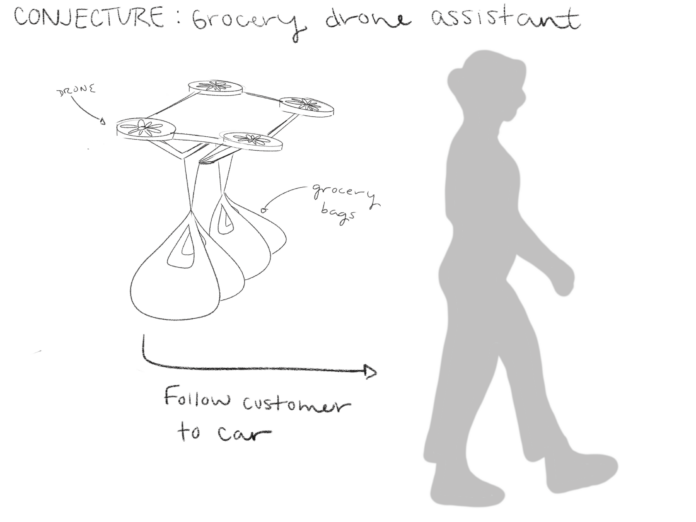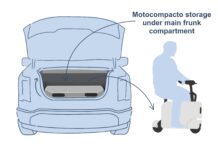After reading through the Science and Tech section, I came up with this conjecture. This would be catered towards any in store grocery shopper who needs assistance getting their groceries to the car. An aerial drone would follow the customer out of the grocery store to the parking lot, carrying the customers bags on a hook attachment. The drone would either be autonomous and tracks the path of the customers phone via the store app. Once the drone sets the groceries in the customers vehicle cargo storage, it would then return to the store.
These drones could be made by Honda and sold to the grocery store chains as an “grocery loading assistant”. To integrate into curbside pickup, this aerial drone could be used as a replacement for the heavy grocery carts the associates drag out to the cars. The drones could come in various sizes or with various carrying attachments to accommodate for different loading sizes.
The disadvantages of this conjecture is that the drones would have to be charged on the regular in the store, the groceries are not protected from weather elements, the drone may be only able to carry a certain wait, and autonomous functions may be difficult for customers to trust. Also, some customers may not like how the drone would be tracking their phone. Drones are also expensive and there may not be enough for every customer to have access to a drone assistant.
Advantages of this conjecture is that the drone assistant can be especially helpful for customers who have mobility restrictions. This could includes mothers with small children, elderly people with a walker or cane, or for someone who cannot lift the load they bought. For curbside associates, these drones can streamline the process of getting heavy groceries loaded into customers cars. This also takes physical strain off of the curbside associates having to load and unload multiple hauls of groceries throughout the day.




